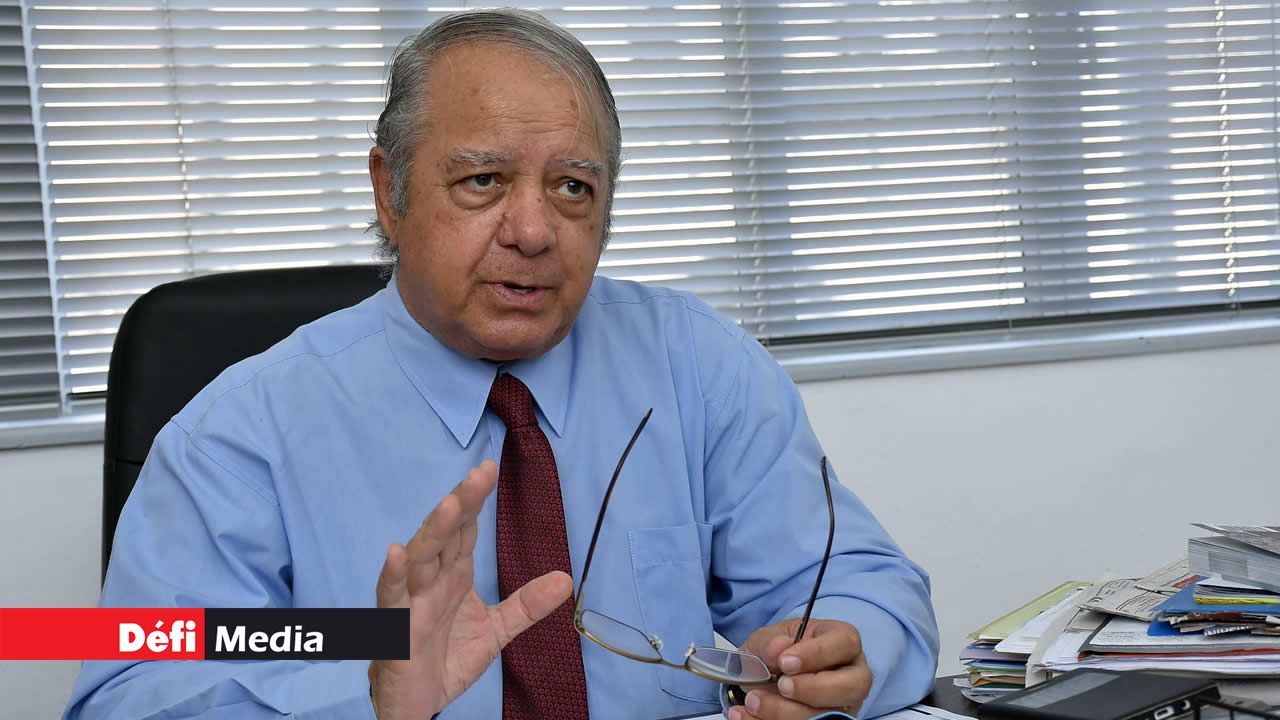
Finance Minister Renganaden Payachy’s first Budget, on Thursday June 4, was always meant to be a complex and difficult balancing act, addressing multiple issues: the need for efficient damage control after a massive Covid-19 hit to an already faltering economy; the need to urgently re-ignite the growth engine by short-term stimulus initiatives in order to get the country back on its feet within two to three years; the opportunity provided for major long-term structural reforms; the need to restore business confidence, while at the same time maintaining a strong safety net to cushion current and future social pain and, finally, the need to organize greater national solidarity in the difficult times ahead.
The Finance Minister has tackled these challenges with a generally clear vision of ways of achieving these objectives and a reasonably good mix of new policies and initiatives. His Budget is thus likely to revive growth to an acceptable degree - provided the actual implementation of measures announced follows the intentions. This is where the actual test will lie. And this is where the Minister may not have been entirely convincing.
This year’s Budget has been built around frightening figures and enormous challenges: GDP will, in 2020, contract 11%. The Budget deficit would normally have shot up to 13% (against a targeted 3.5%) with all that is envisaged. Government revenue will be down 20%. Mr Payachy has, however, been greatly helped by exceptional circumstances which have warranted the lid being easily lifted on budget deficit and public debt ceilings. With the capacity (i) to inject Rs 125 billion in stimulus funds to boost the economy, mostly through Bank of Mauritius intervention (ii) to borrow Rs 70 billion to make up for Government’s reduced revenue base (iii) to allow Public Debt to shoot up from 65% to 83% of GDP, the Government need not worry much about the depth of its war chest to confront the slowdown.
The Finance minister has rightly identified Construction and Agricultural Self-sufficiency as the two pillars of his transformational Budget. Construction, both in the Housing area and large infrastructure projects (worth Rs 60 b in the Private Sector and Rs 40 b in the Public Sector) has a deep impact and a ripple effect extending to many secondary sectors. 12,000 new homes at a cost of Rs 12 b, the Rs 7.5 b Rivière des Anguilles dam, Roads, the Breakwater Fishing Port (if actually built on time) would create large employment opportunities and have a multiplying effect on demand for increased goods and building material in numerous companies, both large and SMEs.
The push for greater Agricultural self-sufficiency, doubled with the creation of the much-needed Land Bank to mobilize available, unutilized land for development will not only help Mauritius achieve greater food independence and reduce imports but would also open up new avenues for young people to go into modern bio-agriculture. Based on past performance, however (looking at the Rose Belle Landscope under-utilized estate), we are very skeptical on Landscope managing this crucial initiative properly. A new efficiently-run structure has to be created for the Land Bank. There is a lot of land available for development: the left-over 1000 acres from the GM-MSPA deal back in the Labour Government days, the 100,000 acres made available to us in Mozambique and Madagascar, thousands of abandoned land by small and large sugar cane planters, as our sugar production slipped from Rs 650,000 tons to just 331,000 tons last year etc. All of these have to be revived.
In other areas, the ‘Protect Made in Mauritius’ campaign seems to be an encouraging prospect. The push for a larger Pharmaceutical Industry as the basis for industrial recovery is a sound policy in these times of health post-Covid urgencies. The adoption of a temporary Unemployment Benefit Scheme (Rs 5,100 over the next six months) will be a pilot scheme and learning curve for a more permanent and well-managed new social initiative which we fully support. The Solidarity Levies (increasing contributions to 25% of income above Rs 3m. p.a. income) is reasonable in current circumstances and will go some way towards creating a solidarity culture in our society, provided it remains exceptional and does not become a permanent feature of our tax structure. The Pension Reform (introduction of a “Contribution Sociale Généralisée”-CSG) to replace the old NPF structure, the “New Data Technology Park” and the Inland Aquaculture project are all welcome initiatives.
However, there is very little in the Budget to quickly help relaunch Tourism, our major foreign exchange earner (Rs 65 b.) which remains in dire condition, except a reference to future Mauritius Investment Corporation (MIC) intervention which is still to be defined. The long-awaited Visitor Protocol to help reboot the sector and attract visitors is still a major unknown.
Little is happening on MIC’s establishment and precious time is being wasted while potential beneficiaries wait for desperately-needed clarity and information on the way ahead.
Likewise, the Development Bank of Mauritius (DBM) Rs 12 b. loan scheme to SMEs , mostly restricted to the small manufacturing sector, is not the answer to cries for help in non-manufacturing, services-based enterprises. Access to credit for SMEs remains extremely difficult and it is doubtful that Maubank’s Factoring new line of activity will by itself provide the adequate ‘breather’ required by small operators.
As Private Investment is projected to fall 18% in 2020, further slowing down economic activity, capital and tax allowances would be most welcome to encourage Mauritians, in these times of low interest rates, to seek ways of putting their money at better and more productive use.
Mr Padayachy has done his best. We believe him to be in the Quiet-achiever and well-meaning league of policy-makers too. Important strategic decisions have been made and they generally go in the right direction. Time is, now, of the essence and actual implementation of new policies and schemes will be crucial. Mauritius has no time to lose and cannot afford the luxury of sitting out the crisis.
Lindsay Rivière
 J'aime
J'aime













